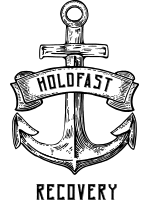
Opioid Rehab in Prescott
Arizona Opioid Addiction Treatment
Opioid addiction is an inability to moderate or control one’s intake of narcotics, despite an awareness of the dangers of opioid consumption and/or the damage it causes to a person’s life. Without effective treatment and recovery, opioid addiction is incredibly harmful and very often deadly. Fortunately, hope is possible.
At Holdfast Recovery, we know that seeking help is not easy, and we want to commend you in taking the first step by visiting our website. We also want to assure you that you’ve come to the right place. Our Prescott opioid rehab center offers a range of addiction treatment programs tailored to individual needs. We are a Christian alcohol and drug rehab facility that specializes in providing effective, clinical, faith-based treatments for Christians, veterans, and first-responders. We invite you to continue reading to learn more about our opioid addiction treatment options or reach out to us directly to speak to one of our admissions counselors about taking the next step.
Types of Opioids Medications:
If you or someone you love needs help overcoming opioid abuse, call (800) 680-7738 or contact us online today.
The U.S. Opioid Epidemic
If you believe you or someone you love is developing an opioid addiction, or if you are already suffering from advanced opioid addiction, you are not alone. In response to the ongoing opioid epidemic in the United States, the U.S. department of Health and Human Services (HHS) declared a public health emergency in 2017. HHS reported that, in 2018, as many as 10.3 million Americans misused prescription opioids in 2018 and another 2 million had an opioid use disorder.
How did this happen? During the late 1990s, the pharmaceutical industry severely downplayed the addictive qualities of various painkillers. This led to doctors and other healthcare providers prescribing opioid pain relievers at higher rates, leading to greater misuse of both prescribed and unprescribed opioids. Unfortunately, despite pharmaceutical companies’ assurances that these substances were not addictive, the highly addictive nature of opioids soon became apparent.
Now, an estimated 130+ people in the United States die every single day due to opioid-related overdoses, with opioid-related deaths reaching a historical peak of more than 47,000 fatal overdoses in 2017. While opioid-related deaths may have decreased slightly in 2018 to 46,802, this number was still four times higher than totals from 1999.
Other facts about opioid use in the United States courtesy of the National Institute on Drug Abuse:
- Between 21 to 29 percent of patients prescribed opioids for chronic pain misuse them, with anywhere from 8 to 12 percent developing an opioid use disorder.
- Between 4 and 6 percent of people who misuse prescription opioids eventually transition to using heroin.
- Nearly 80% of people who use heroin first misused prescription opioids.
What Is Opioid Addiction?
Opioid addiction occurs when a person uses/misuses a type of drug known as an opioid. Also referred to as narcotics or painkillers, opioids are a group of drugs that, in the most basic sense, relieve moderate to severe acute or chronic pain. Prescription opioids include oxycodone (Percocet®, OxyContin®), hydrocodone (Vicodin®), tramadol, fentanyl, codeine, and morphine. Heroin is a non-prescription opioid that is never used for medical purposes in the U.S.
Opioid use/misuse can take many forms and may look like:
- Taking more than the recommended dose of a prescribed medication
- Taking a prescribed opioid for the sole purpose of getting high
- Taking someone else’s prescribed medication
- Ingesting an altered medication or ingesting a medication in a non-prescribed way
- Any use of illicit opioids, i.e. heroin
Typically, opioid dependence/addiction occurs when a person continues taking a drug despite negative consequences, such as physical or financial harm, damage to one’s relationships, loss of employment, and more. Signs of addiction often begin with tolerance, which is the need for an increasing amount of the drug in order to achieve the same effect of feeling high, as well as dependence, which results in a person experiencing withdrawal symptoms when not using the drug.
Call (800) 680-7738 or contact us online to get started on your recovery today.
Side Effects of Opioid Use
Even when used properly as instructed by a medical professional, prescription opioids can have a range of mild, moderate, and severe side effects. These side effects can affect an individual’s physical health, as well as his or her mental well-being.
Relatively common side effects of prescription opioid use include:
- Sleepiness
- Sedation
- Confusion
- Incoherence
- Euphoria
- Nausea
- Vomiting
- Constipation
- Slowed breathing
When misused, prescription opioids can lead to severely slowed breathing which, in turn, can cause hypoxia. Hypoxia occurs when there is not enough oxygen flow to the brain, often leading to short- and/or long-term brain damage, coma, and death.
Signs of Opioid Overdose
Misuse of prescription opioids can also lead to overdose, which can be fatal.
Signs of opioid overdose include:
- Pale or clammy face
- Blue or purple lips or fingernails
- Limpness
- Gurgling
- Vomiting
- Inability to speak
- Difficulty being roused/awakened
- Slowed or stopped breathing
- Lack of heartbeat/pulse
If anyone is exhibiting any signs of opioid overdose, call 911 immediately.
Our Opioid Addiction Treatment Programs
At Holdfast Recovery, we offer a variety of opioid addiction treatment programs in Prescott to clients throughout Arizona and from across the U.S. We focus on effective, clinical treatment provided in a Christian faith-based environment. Our mission is to not only treat the addiction but also its underlying causes, including trauma.
When needed, we can recommend detox and inpatient programs for those who need a safe, monitored environment to get off opioids. Our programs begin with an initial intake assessment, during which time our team will develop a treatment plan with you tailored to your situation and needs.
Our comprehensive opioid addiction treatment programs include:
- Partial hospitalization
- Intensive outpatient program
- Cognitive behavioral therapy
- Physical fitness
- Group therapy
- Aftercare
- Sober living programs
- Faith-based activities
Our system comprises three phases. During the first phase, you’ll spend no less than 25 hours a week participating in group therapy. You’ll also take part in a variety of other activities, including Christian 12-step programs and Bible studies, outdoor recreational and fitness activities, and up to two individual EMDR sessions. During this time, you will reside in a sober-living facility where you will receive 24-hour support from staff members and bi-weekly random substance tests.
During phase two, you’ll be encouraged to become increasingly independent. This phase typically involves outpatient programs, including continuing Bible studies and men’s groups, while you look for employment. You’ll also be required to attend three group therapy session per week, as well as individual therapy sessions.
Phase three involves even more independence, allowing you to create a life of sobriety that you can maintain in the future. During this time, we continue offering support and encourage you to continue attending church, Bible studies, men’s groups, and other meetings that allow you to continue building the healthy, meaningful relationships you’ve developed during your recovery. We offer comprehensive aftercare so that you can stay on the right path and achieve long-term sobriety.
Contact us at (800) 680-7738 to learn more. We accept most private insurances.

HEAR FROM PAST CLIENTS
Frequently Asked Questions
-
 Do You Treat My Addiction?At Holdfast Recovery, we treat both alcohol addiction and all forms of drug addiction (including co-occurring mental health disorders). We offer an array of programs to target your unique needs.
Do You Treat My Addiction?At Holdfast Recovery, we treat both alcohol addiction and all forms of drug addiction (including co-occurring mental health disorders). We offer an array of programs to target your unique needs. -
 Where Do I Live While In Treatment?While at Holdfast Recovery, you can live under our care at our own housing program or if preferred, you can stay with a family member. We have 24/7 staff that are always here for you.
Where Do I Live While In Treatment?While at Holdfast Recovery, you can live under our care at our own housing program or if preferred, you can stay with a family member. We have 24/7 staff that are always here for you. -
 Will My Insurance Cover This?At Holdfast Recovery, we accept most major insurances and understand how hard the process can be. Fill out our insurance form or give us a call and we will help you along the way.
Will My Insurance Cover This?At Holdfast Recovery, we accept most major insurances and understand how hard the process can be. Fill out our insurance form or give us a call and we will help you along the way. -
 How is Your Program Different?Our program is different in many ways, one of them being our 3-phase approach and how we address addiction and the trauma that lies underneath!
How is Your Program Different?Our program is different in many ways, one of them being our 3-phase approach and how we address addiction and the trauma that lies underneath!






